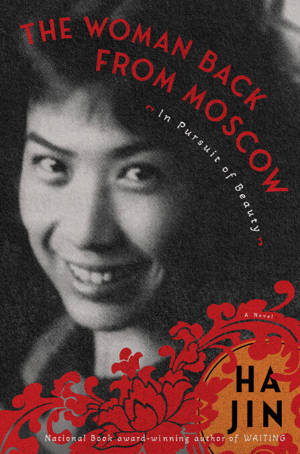
- Afhalen na 1 uur in een winkel met voorraad
- Gratis thuislevering in België vanaf € 30
- Ruim aanbod met 7 miljoen producten
- Afhalen na 1 uur in een winkel met voorraad
- Gratis thuislevering in België vanaf € 30
- Ruim aanbod met 7 miljoen producten
Zoeken
€ 12,80
+ 12 punten
Uitvoering
Omschrijving
Through the life of a remarkable woman—based on pioneering stage director Sun Weishi (1921–1968)—this epic novel immerses us in the multifaceted history of China’s Communist Party.
A powerful, insightful account from the National Book Award–winning author, who came of age during the Cultural Revolution.
As a promising young actress, Sun Weishi made the critical decision to pursue her studies in Moscow—with the blessing of her influential adoptive father, Zhou Enlai, and Mao himself. The valuable insights she gained there during World War II, most notably the significance of characters' inner lives, would enable her to excel back in China, where she produced works by Chekhov and Gogol, and other socially progressive dramas, such as an adaptation of Uncle Tom's Cabin. Her striking career as China's first female director of modern spoken drama (Huaju) would be derailed with the advent of the Cultural Revolution in 1966, however, which put her once again at odds with an old enemy—Jiang Qing, a fellow actress who schemed her way to the top as Mao's fourth and final wife.
Through the decades-long rivalry between these two complex women, and their differing approaches to the men in power who shaped their lives, Ha Jin deftly explores the ideals of communism and the reality of the Chinese Communist Party. At the same time, the novel captivates us with Sun Weishi's personal struggles and triumphs, as she navigates friendship, love, art, and politics amidst the great events of the twentieth century.
A powerful, insightful account from the National Book Award–winning author, who came of age during the Cultural Revolution.
As a promising young actress, Sun Weishi made the critical decision to pursue her studies in Moscow—with the blessing of her influential adoptive father, Zhou Enlai, and Mao himself. The valuable insights she gained there during World War II, most notably the significance of characters' inner lives, would enable her to excel back in China, where she produced works by Chekhov and Gogol, and other socially progressive dramas, such as an adaptation of Uncle Tom's Cabin. Her striking career as China's first female director of modern spoken drama (Huaju) would be derailed with the advent of the Cultural Revolution in 1966, however, which put her once again at odds with an old enemy—Jiang Qing, a fellow actress who schemed her way to the top as Mao's fourth and final wife.
Through the decades-long rivalry between these two complex women, and their differing approaches to the men in power who shaped their lives, Ha Jin deftly explores the ideals of communism and the reality of the Chinese Communist Party. At the same time, the novel captivates us with Sun Weishi's personal struggles and triumphs, as she navigates friendship, love, art, and politics amidst the great events of the twentieth century.
Specificaties
Betrokkenen
- Auteur(s):
- Uitgeverij:
Inhoud
- Aantal bladzijden:
- 752
- Taal:
- Engels
Eigenschappen
- Productcode (EAN):
- 9781635423785
- Verschijningsdatum:
- 20/11/2023
- Uitvoering:
- E-book
- Beveiligd met:
- Adobe DRM
- Formaat:
- ePub

Alleen bij Standaard Boekhandel
+ 12 punten op je klantenkaart van Standaard Boekhandel
Beoordelingen
We publiceren alleen reviews die voldoen aan de voorwaarden voor reviews. Bekijk onze voorwaarden voor reviews.








